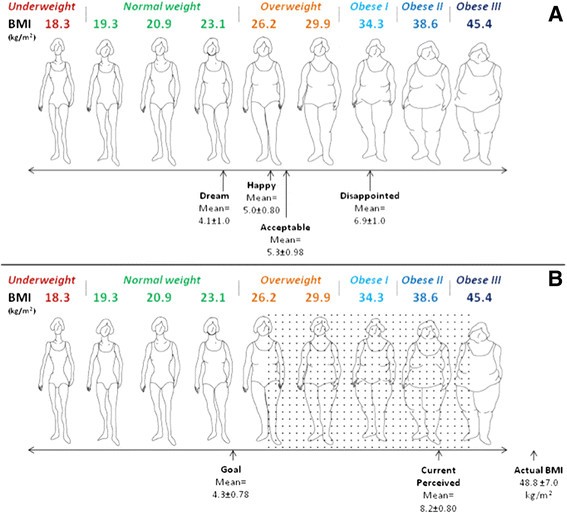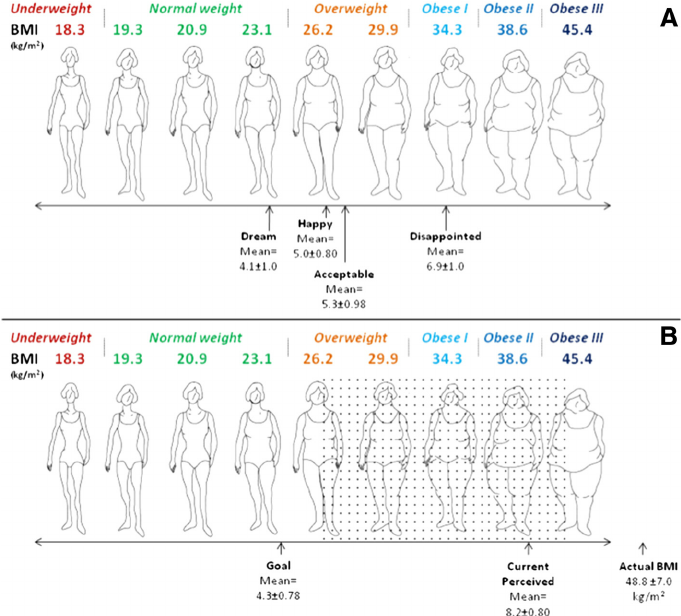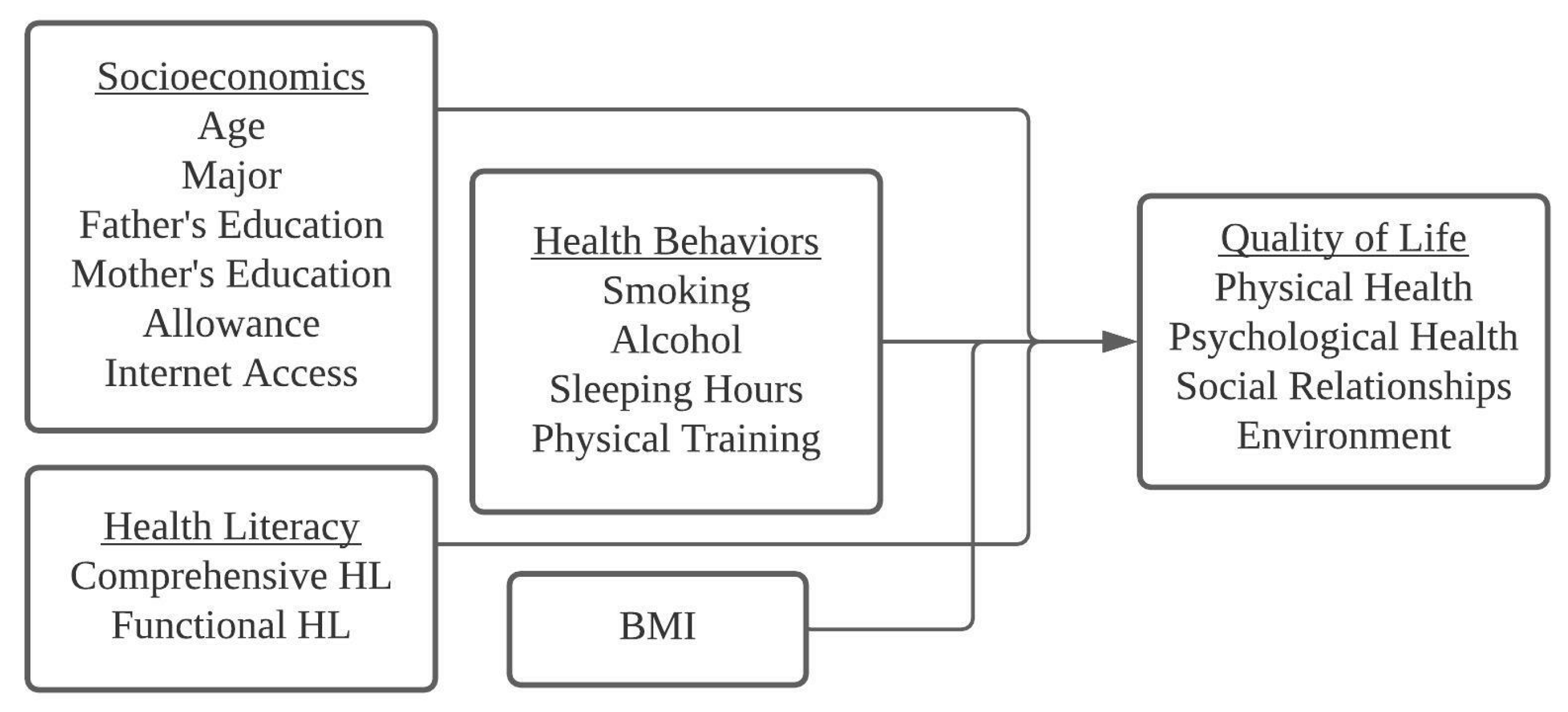Body shape expectations and self-ideal body shape discrepancy in women seeking bariatric surgery: a cross-sectional study, BMC Obesity

Background Postoperative body shape expectations (BSE) of bariatric surgery candidates remain relatively unexplored, and may have important implications for weight loss outcomes, treatment satisfaction, and education. Methods The ‘Silhouette Figure Rating Scale’ was administered to 69 consecutive female candidates. Self-perceived current and goal body shape and postoperative BSE in four categories; “dream, “happy”, “acceptable”, and “disappointed” were examined. Results The mean age and BMI of the sample was 43.4 ± 8.9 years and 48.8 ± 7.0 kg/m2. Self-ideal body shape discrepancy of 4.1 ± 1.3 silhouettes was reported, indicating body image dissatisfaction. 53% incorrectly identified the silhouette associated with their actual BMI. Goal body shape (4.3 ± 0.8 silhouettes) corresponded to a BMI figure 23.1 kg/m2- 26.2 kg/m2. The postoperative “dream” (4.1 ± 1.0 silhouettes), “happy” (5.0 ± 0.8 silhouettes), “acceptable” (5.3 ± 1.0 silhouettes), and “disappointed” (6.9 ± 1.0 silhouettes) BSE corresponded to silhouettes that were thinner than the thinnest silhouette clinically expected based on a 56.1% excess weight loss 1-year after laparoscopic sleeve gastrectomy (LSG) or a 22.3% to 47.2% total body weight loss. Conclusions Women seeking bariatric surgery experience body image dissatisfaction and misperceive their actual body size. BSE do not correspond with evidence-based LSG weight loss outcomes.

Women's Reasons to Seek Bariatric Surgery and Their Expectations on the Surgery Outcome — a Multicenter Study from Five European Countries

PDF) Body size perception and ideal body size in overweight and obese young adult women

Effects of preoperative sarcopenia-related parameters on the musculoskeletal and metabolic outcomes after bariatric surgery: a one-year longitudinal study in females

Body shape expectations of women seeking laparoscopic sleeve

PDF) Is there a difference in body size dissatisfaction between the patients with obesity seeking and not seeking treatment for obesity?

PDF) Dysfunctional body investment versus body dissatisfaction: Relations with well-being and controlled motivations for obesity treatment

IJERPH, Free Full-Text

Obesity Pillars Roundtable: Body mass index and body composition in Black and Female individuals. Race-relevant or racist? Sex-relevant or sexist? - ScienceDirect

Women's Reasons to Seek Bariatric Surgery and Their Expectations on the Surgery Outcome — a Multicenter Study from Five European Countries

Body image - Wikipedia

Body image dissatisfaction and its relation to body mass index among female medical students in Sudan: across-sectional study 2020-2021, BMC Women's Health